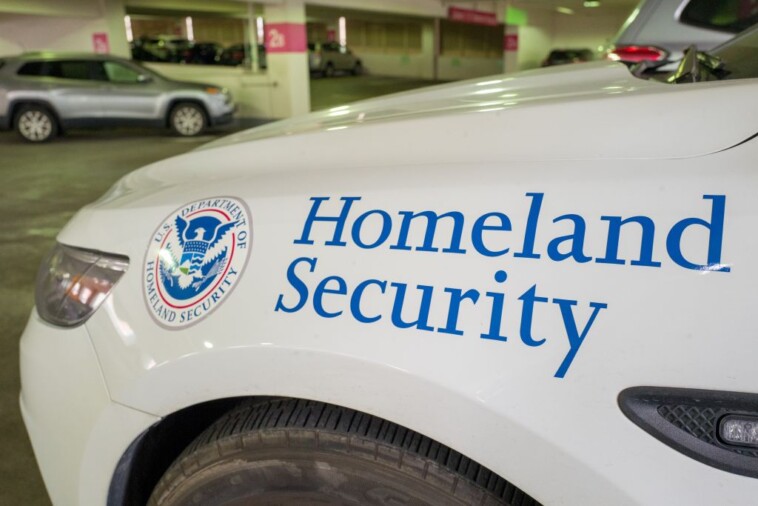More than 2,100 people on Iowa’s voter rolls self-declared as non-citizens when registering for drivers licenses, Iowa Secretary of State Paul D. Pate said.
He provided the names to US Citizenship and Immigration Services (USCIS), which researched each name and determined that at least 250 are still non-citizens — but refused to tell Iowa which ones, Pate said.
Meanwhile, left-wing groups sued to block him from directing local officials to challenge votes cast by people on the list on the basis that the data wasn’t fully confirmed.
“The Des Moines Field Office [of USCIS] has since informed us that they had completed a review of every name. Now, the office in Washington, D.C. is refusing to let the Des Moines office share those results with us. This information would be critical to Iowa’s election officials in this process,” Pater wrote in an October 31 letter.
“The work has been done. The most current, verified information is available. Yet Washington, D.C. will not share it with us,” it continued. “If the federal government has information that will ensure only U.S. citizens vote AND ensure naturalized citizens can cast their ballot as normal, that information must be shared.”
Pate said he has asked the federal Department of Justice to intervene, but it refused. That led him to resort to seeking intervention from the state’s senators, Chuck Grassley and Joni Ernst, both Republicans. The pair wrote to USCIS Director Ur Jaddou to demand that he provide the data by November 1, but he did not, they said.
“Anything short of the information Secretary Pate requested is unacceptable. Iowa has worked in good faith to secure its electoral process and safeguard Americans’ cherished right to vote. Unfortunately, USCIS’ stonewalling has led to more questions than answers,” they said in a statement.
Pate was not attempting to remove them all from the voter rolls and people who were flagged would still be able to cast provisional votes.
The refusal of the federal government to tell a state whether registered voters are citizens or not is a stunning development after the DOJ sued the state of Virginia for removing self-declared noncitizens from its rolls by saying that it could only be done if each case was researched individually, and if it could be ensured that American citizens who were mistakenly listed would not be removed from the rolls. Both of those things apparently occurred in the Iowa case, yet the federal government still made it impossible to remove the names.
In Virginia, people who said they were not citizens when applying for drivers licenses, then registered to vote, were sent a letter asking them to clarify whether it was a mix-up or not, and if they did not respond within 14 days, then they were removed from the rolls but would still be able to cast a provisional ballot. The Biden-Harris DOJ sued to block the move, claiming it was burdensome for people to have to respond to a letter.
The lawsuit said that Virginia was free to remove non-citizens from its rolls through “systematic” means, but only outside of a 90-day “quiet period” before an election. Given that there are primary and general elections, that could mean the majority of an election year is off-limits.
Two lower courts sided with the DOJ, but the Supreme Court reversed them and allowed Virginia to remove the voters.
Update: On Sunday evening, a federal judge sided with Iowa, saying no one disputed that at least some names on the list were, in fact, noncitizens who registered to vote, and “it would not be appropriate for the court to respond by granting injunctive relief that effectively forces local election officials to allow ineligible voters to vote.”



